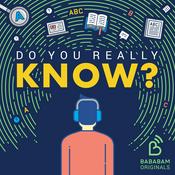187 episodes
- Why are people with Ehlers-Danlos syndromes, POTS, and mast cell disorders so frequently misdiagnosed, or dismissed entirely? In this episode of Bendy Bodies, Dr. Linda Bluestein is joined by Dr. Dacre Knight, Medical Director of the UVA Health EDS and Hypermobility Disorders Center, for a wide-ranging conversation about why complex, multisystem conditions continue to fall through the cracks of modern medicine. Together, they explore how siloed healthcare systems, time-limited visits, and overreliance on “normal” labs and imaging contribute to years of delayed diagnosis and unnecessary suffering.
The discussion unpacks why patients are often labeled as anxious, functional, or “too complex,” how pattern recognition breaks down when symptoms span multiple systems, and why early diagnosis could prevent much of the downstream complexity clinicians later struggle to manage. Dr. Knight also explains how diagnostic frameworks like the EDS–POTS–MCAS triad can be helpful and where they risk oversimplifying reality.
This episode offers a candid look at the gaps in current diagnostic thinking and a more thoughtful, patient-centered approach to evaluating complex chronic illness, one that prioritizes listening, curiosity, and clinical humility.
Takeaways:
When diagnosis is delayed, complexity isn’t inevitable — it’s created.
“Normal” tests don’t mean normal lives. Pain, fatigue, and dysfunction can exist long before labs catch up.
Many patients aren’t anxious until they’re repeatedly dismissed. Mislabeling symptoms often becomes the real diagnosis delay.
Multisystem conditions don’t reveal themselves through checklists — they emerge through patterns clinicians are trained to overlook.
Sometimes the most powerful intervention isn’t a test or a treatment — it’s listening earlier, longer, and with curiosity.
Find the episode transcript here.
Want to learn more about the UVA EDS Center?
For Appointments and Questions: [email protected]
UVA EDS: https://www.uvahealth.com/healthy-practice/advancing-care-through-ehlers-danlos-clinic
UVA EDS FAQ: https://www.uvahealth.com/support/eds/faq
UVA Pediatric Integrative Medicine: https://childrens.uvahealth.com/specialties/integrative-health
Want more Dr. Dacre Knight?
https://x.com/knidac
Want more Dr. Linda Bluestein, MD?
Website: https://www.hypermobilitymd.com/
YouTube: https://www.youtube.com/@bendybodiespodcast
Instagram: https://www.instagram.com/hypermobilitymd/
Facebook: https://www.facebook.com/BendyBodiesPodcast
X: https://twitter.com/BluesteinLinda
LinkedIn: https://www.linkedin.com/in/hypermobilitymd/
Newsletter: https://hypermobilitymd.substack.com/
Shop my Amazon store https://www.amazon.com/shop/hypermobilitymd
Dr. Bluestein's Recommended Herbs, Supplements and Care Necessities: https://us.fullscript.com/welcome/hypermobilitymd/store-start
Thank YOU so much for tuning in. We hope you found this episode informative, inspiring, useful, validating, and enjoyable. Join us on the next episode for YOUR time to level up your knowledge about hypermobility disorders and the people who have them.
Join YOUR Bendy Bodies community at https://www\.bendybodiespodcast\.com/.
YOUR bendy body is our highest priority!
Learn more about Human Content at http://www\.human-content\.com
Podcast Advertising/Business Inquiries: [email protected]
Part of the Human Content Podcast Network
FTC: This video is not sponsored. Links are commissionable, meaning I may earn commission from purchases made through links
Learn more about your ad choices. Visit megaphone.fm/adchoices Pelvic Pain in EDS: What Doctors Miss and Why It Matters with Dr Rachel Rubin (Ep 183)
12/2/2026 | 55 mins.Pelvic pain, bladder symptoms, and sexual health concerns are incredibly common in people with Ehlers-Danlos Syndromes, yet they’re often misunderstood, dismissed, or treated in isolation.
In this episode of Bendy Bodies, Dr. Linda Bluestein is joined by Dr. Rachel Rubin, a board-certified urologist and nationally recognized leader in sexual medicine, to unpack why connective tissue disorders, mast cell activation, dysautonomia, and hormonal shifts so often collide in the pelvis. Together, they explore why bladder symptoms can occur without infection, why pelvic floor therapy alone may not be enough, and how hormones influence tissue health, inflammation, and pain.
The conversation dives into underrecognized drivers of symptoms, like vestibular pain, nerve involvement, mast cell activity, and hormonal suppression from birth control, while also addressing why many patients are left searching for answers for years. Dr. Rubin explains why sexual health is inseparable from overall health and how multidisciplinary, patient-centered care can dramatically improve quality of life.
For anyone living with a connective tissue disorder who has been told “everything looks normal” despite ongoing pelvic or bladder symptoms, this episode offers clarity, validation, and a new framework for understanding what may actually be happening.
Takeaways:
Pelvic and bladder symptoms in EDS are rarely caused by just one issue, they often involve hormones, nerves, mast cells, and musculoskeletal factors together.
Pain with tampons, sex, or sitting is not normal, even if exams and tests appear normal.
Hormonal changes and suppression can significantly affect pelvic tissue health, contributing to pain and urinary symptoms.
Pelvic floor therapy helps many patients, but not all, especially when underlying tissue or hormonal issues go unaddressed.
Sexual health is a quality-of-life issue, not a luxury, and deserves serious medical attention in hypermobility care.
Find the episode transcript here.
Want more Dr. Rachel Rubin?
Instagram: @drrachelrubin
YouTube: https://www.youtube.com/c/DrRachelRubin
Want more Dr. Linda Bluestein, MD?
Website: https://www.hypermobilitymd.com/
YouTube: https://www.youtube.com/@bendybodiespodcast
Instagram: https://www.instagram.com/hypermobilitymd/
Facebook: https://www.facebook.com/BendyBodiesPodcast
X: https://twitter.com/BluesteinLinda
LinkedIn: https://www.linkedin.com/in/hypermobilitymd/
Newsletter: https://hypermobilitymd.substack.com/
Shop my Amazon store https://www.amazon.com/shop/hypermobilitymd
Dr. Bluestein's Recommended Herbs, Supplements and Care Necessities: https://us.fullscript.com/welcome/hypermobilitymd/store-start
Want to learn more about the UVA EDS Center?
For Appointments and Questions: [email protected]
UVA EDS: https://www.uvahealth.com/healthy-practice/advancing-care-through-ehlers-danlos-clinic
UVA EDS FAQ: https://www.uvahealth.com/support/eds/faq
UVA Pediatric Integrative Medicine: https://childrens.uvahealth.com/specialties/integrative-health
Thank YOU so much for tuning in. We hope you found this episode informative, inspiring, useful, validating, and enjoyable. Join us on the next episode for YOUR time to level up your knowledge about hypermobility disorders and the people who have them.
Join YOUR Bendy Bodies community at https://www\.bendybodiespodcast\.com/.
YOUR bendy body is our highest priority!
Learn more about Human Content at http://www\.human-content\.com
Podcast Advertising/Business Inquiries: [email protected]
Part of the Human Content Podcast Network
FTC: This video is not sponsored. Links are commissionable, meaning I may earn commission from purchases made through links
Learn more about your ad choices. Visit megaphone.fm/adchoicesThe Biggest Mistake in EDS Care and How to Fix It with Dr. Ina Stephens & Dr. Dacre Knight (Ep 182)
05/2/2026 | 1h 11 mins.What would it look like if people with Ehlers-Danlos Syndrome finally had a true medical home?
In this episode of Bendy Bodies, Dr. Linda Bluestein is joined by Dr. Ina Stephens and Dr. Dacre Knight to share the story behind the newly launched University of Virginia Ehlers-Danlos Syndrome Center, how it came to be, why it was urgently needed, and what makes it fundamentally different from traditional models of care.
The conversation explores the power of integrative, multidisciplinary care, the consequences of fragmented systems, and why early recognition, especially in pediatric patients, can profoundly change lifelong outcomes. Dr. Stephens and Dr. Knight discuss what patients can expect when seeking care at UVA, how research and clinical care are being built together, and why clinician education is essential to closing long-standing gaps in EDS care.
The episode also features a major announcement: a new collaboration between Bendy Bodies and the UVA EDS Center, uniting global patient education with academic medicine to help reshape how connective tissue disorders are understood, taught, and treated worldwide.
For anyone searching for what meaningful progress in EDS care could look like, this conversation offers a glimpse of what’s possible.
Takeaways:
EDS care is most effective when it’s coordinated, not scattered across disconnected specialties.
Early diagnosis, particularly in children, can prevent years of physical and emotional harm.
An “EDS home” model helps reduce gaslighting, burnout, and fragmented care.
Academic medicine is beginning to catch up, creating space for evidence-informed, compassionate treatment.
Education itself is a form of care, benefiting both patients and clinicians navigating complex conditions.
Find the episode transcript here.
Want to learn more about the UVA EDS Center?
For Appointments and Questions: [email protected]
UVA EDS: https://www.uvahealth.com/healthy-practice/advancing-care-through-ehlers-danlos-clinic
UVA EDS FAQ: https://www.uvahealth.com/support/eds/faq
UVA Pediatric Integrative Medicine: https://childrens.uvahealth.com/specialties/integrative-health
Want more Dr. Dacre Knight?
https://x.com/knidac
Want more Dr. Linda Bluestein, MD?
Website: https://www.hypermobilitymd.com/
YouTube: https://www.youtube.com/@bendybodiespodcast
Instagram: https://www.instagram.com/hypermobilitymd/
Facebook: https://www.facebook.com/BendyBodiesPodcast
X: https://twitter.com/BluesteinLinda
LinkedIn: https://www.linkedin.com/in/hypermobilitymd/
Newsletter: https://hypermobilitymd.substack.com/
Shop my Amazon store https://www.amazon.com/shop/hypermobilitymd
Dr. Bluestein's Recommended Herbs, Supplements and Care Necessities: https://us.fullscript.com/welcome/hypermobilitymd/store-start
Thank YOU so much for tuning in. We hope you found this episode informative, inspiring, useful, validating, and enjoyable. Join us on the next episode for YOUR time to level up your knowledge about hypermobility disorders and the people who have them.
Join YOUR Bendy Bodies community at https://www\.bendybodiespodcast\.com/.
YOUR bendy body is our highest priority!
Learn more about Human Content at http://www\.human-content\.com
Podcast Advertising/Business Inquiries: [email protected]
Part of the Human Content Podcast Network
FTC: This video is not sponsored. Links are commissionable, meaning I may earn commission from purchases made through links
Learn more about your ad choices. Visit megaphone.fm/adchoicesMast Cell Activation Syndrome: The Diagnosis Most Doctors Miss with Dr. Lawrence Afrin (Ep 181)
29/1/2026 | 1h 33 mins.Mast Cell Activation Syndrome is one of the most misunderstood, and underrecognized, conditions in modern medicine. In this episode, Dr. Linda Bluestein is joined by Dr. Lawrence Afrin, one of the world’s leading experts on mast cell disease, to unpack why MCAS is so often missed, why tryptase alone is not enough to diagnose it, and how this condition may be driving chronic inflammation, neurologic symptoms, psychiatric symptoms, and even hypermobile Ehlers-Danlos Syndrome (hEDS) in some patients.
They talk about why MCAS can look completely different from one person to the next, how mast cells influence nearly every system in the body, and why so many patients are told “nothing is wrong” despite being profoundly unwell. We also explore emerging treatments, including GLP-1 medications, and what the future of MCAS research may hold.
If you or your patients live with complex, multisystem symptoms that don’t fit neatly into one diagnosis, this conversation may change how you see everything.
Takeaways:
MCAS rarely looks like classic allergy, which is why it’s so often overlooked.
Normal tryptase does not rule out mast cell disease, despite what many clinicians believe.
Chronic multisystem inflammation is the biggest red flag for MCAS.
MCAS may help explain hypermobile EDS in some patients, not as a genetic collagen defect but as an immune-driven process.
New therapies are discussed, offering real hope for improved quality of life.
Find the episode transcript here.
Want more Dr. Lawrence Afrin?
http://www.aimcenterpm.com
Want more Dr. Linda Bluestein, MD?
Website: https://www.hypermobilitymd.com/
YouTube: https://www.youtube.com/@bendybodiespodcast
Instagram: https://www.instagram.com/hypermobilitymd/
Facebook: https://www.facebook.com/BendyBodiesPodcast
X: https://twitter.com/BluesteinLinda
LinkedIn: https://www.linkedin.com/in/hypermobilitymd/
Newsletter: https://hypermobilitymd.substack.com/
Shop my Amazon store https://www.amazon.com/shop/hypermobilitymd
Dr. Bluestein's Recommended Herbs, Supplements and Care Necessities: https://us.fullscript.com/welcome/hypermobilitymd/store-start
Thank YOU so much for tuning in. We hope you found this episode informative, inspiring, useful, validating, and enjoyable. Join us on the next episode for YOUR time to level up your knowledge about hypermobility disorders and the people who have them.
Join YOUR Bendy Bodies community at https://www\.bendybodiespodcast\.com/.
YOUR bendy body is our highest priority!
Learn more about Human Content at http://www\.human-content\.com
Podcast Advertising/Business Inquiries: [email protected]
Part of the Human Content Podcast Network
FTC: This video is not sponsored. Links are commissionable, meaning I may earn commission from purchases made through links
Learn more about your ad choices. Visit megaphone.fm/adchoices- In this episode, Dr. Linda Bluestein is joined by Dr. Eric Singman, a neuro-ophthalmologist who lives at the intersection of the eyes, the brain, and the complex symptoms so many people with Ehlers-Danlos Syndrome experience. They dig into why EDS patients often struggle with vision even when everything looks “normal,” why convergence problems and visual fatigue are so common, and how conditions like POTS, mast cell activation, Chiari malformation, and cervical instability quietly affect how we see.
They also talk about dry eye, visual snow, glare sensitivity, elevated intracranial pressure without papilledema, and why so many EDS patients are sent down expensive treatment paths that may not actually help. This conversation is part science, part myth-busting, and part reality check for anyone who’s been told their symptoms don’t make sense.
If you’ve ever felt dismissed, confused, or overwhelmed by eye and vision issues in connective tissue disorders, this one’s for you.
Takeaways:
Normal eye exams don’t mean your vision problem isn’t real, especially for people with EDS.
Many vision symptoms in EDS are collateral damage, not primary eye disease.
Convergence issues are often blamed, but fatigue, cognition, and neck instability may be the real drivers.
Dry eye in EDS is more complex than “use drops”, especially with mast cell involvement.
The neck may be the missing piece in vision, brain fog, headaches, and reading difficulty.
Find the episode transcript here.
Want more Dr. Eric Singman?
https://www.umms.org/find-a-doctor/profiles/dr-eric-lowell-singman-md-1881654804
Want more Dr. Linda Bluestein, MD?
Website: https://www.hypermobilitymd.com/
YouTube: https://www.youtube.com/@bendybodiespodcast
Instagram: https://www.instagram.com/hypermobilitymd/
Facebook: https://www.facebook.com/BendyBodiesPodcast
X: https://twitter.com/BluesteinLinda
LinkedIn: https://www.linkedin.com/in/hypermobilitymd/
Newsletter: https://hypermobilitymd.substack.com/
Shop my Amazon store https://www.amazon.com/shop/hypermobilitymd
Dr. Bluestein's Recommended Herbs, Supplements and Care Necessities: https://us.fullscript.com/welcome/hypermobilitymd/store-start
Thank YOU so much for tuning in. We hope you found this episode informative, inspiring, useful, validating, and enjoyable. Join us on the next episode for YOUR time to level up your knowledge about hypermobility disorders and the people who have them.
Join YOUR Bendy Bodies community at https://www\.bendybodiespodcast\.com/.
YOUR bendy body is our highest priority!
Learn more about Human Content at http://www\.human-content\.com
Podcast Advertising/Business Inquiries: [email protected]
Part of the Human Content Podcast Network
FTC: This video is not sponsored. Links are commissionable, meaning I may earn commission from purchases made through links
Learn more about your ad choices. Visit megaphone.fm/adchoices
More Education podcasts
Trending Education podcasts
About Bendy Bodies with Dr. Linda Bluestein
Whether you’re bendy with all the benefits or hurting in all the wrong places, you’ve come to the right place for all things hypermobility. Connective tissue disorders like Ehlers-Danlos Syndromes (EDS) are often dismissed or overlooked by healthcare providers as a cause of chronic pain. But if you or someone you care about struggles with the life-altering symptoms of hypermobility, you should know YOU ARE NOT ALONE! At the Bendy Bodies Podcast, we understand.
Each week, join Dr. Linda Bluestein (The Hypermobility MD) as she pulls back the curtain on how to prevent injury and unnecessary suffering in “double-jointed” individuals seeking a more comfortable life in their unique, complex “bendy bodies.” When you tune in, you’re engaging in more than a podcast. Both on-air and online, you’re joining a supportive community where patients, caregivers, and healthcare professionals trade insights, life hacks, and inspiring stories to embrace our Bendy Bodies journey together!
Podcast websiteListen to Bendy Bodies with Dr. Linda Bluestein, Gaeilge Weekly and many other podcasts from around the world with the radio.net app

Get the free radio.net app
- Stations and podcasts to bookmark
- Stream via Wi-Fi or Bluetooth
- Supports Carplay & Android Auto
- Many other app features
Get the free radio.net app
- Stations and podcasts to bookmark
- Stream via Wi-Fi or Bluetooth
- Supports Carplay & Android Auto
- Many other app features


Bendy Bodies with Dr. Linda Bluestein
Scan code,
download the app,
start listening.
download the app,
start listening.







































